Unawareness of the issue, psychological stress, and the difficult search for survivors who agree to be interviewed hinder journalists from properly covering the CRSV topic. To change the situation, a comprehensive educational campaign among the population is needed, and the media must become part of it
On March 27, the National Union of Journalists of Ukraine (NUJU) presented the results of a sociological survey among journalists on the coverage of sexual violence during the war.
The research was conducted in the format of a focus group in February 2024 as part of the project Promoting Social Integration of CRSV Survivors and Breaking Chains of Stigma, which is implemented by the NUJU with the support of the Mukwege Foundation. An expert on conducting the focus group Explaining CRSV Topic is the head of the qualitative research department of the Kyiv International Institute of Sociology and a candidate of psychological sciences, Anastasiya Bastrakova.
The speakers were the First Secretary of the NUJU, Lina Kushch, human rights defender, citizen journalist, former political prisoner, communications director of SEMA Ukraine NGO, and laureate of the National Human Rights Award, Liudmyla Huseinova, and women’s rights trainer Mariya Dmytriyeva.
Conflict-Related Sexual Violence (CRSV) is one of the most important and relevant topics today and in the future. This is evidenced by the stories of Ukrainians who returned from russian captivity or those who were able to leave the occupied territories. It was noted that there will be much more material on this topic after the end of the war, the de-occupation of the territories and the appearance of a larger number of eyewitnesses.
To date, respondents record an insufficient number of materials on the CRSV topic.
According to the survey participants, the level of journalists’ awareness of the research topic is low. From the examples given by the respondents during the discussion, it is possible to conclude about the insufficient level of knowledge given in higher educational institutions specifically in areas of work with complex topics and target audiences. In addition, there is insufficient understanding of the importance of participation in training events dedicated to this topic.
A large number of media representatives, according to the focus group participants, are not interested in preparing materials on CRSV. Among the main reasons are the risk of not receiving a financial reward if the interlocutors refuse their consent to publication, high psychological stress during interviews, and further preparation of materials.
In general, respondents understand that they can play an important role in documenting war crimes related to sexual violence. The group members noted that they have an interest and desire to work in this direction, provided that the activity is supported by a grant or paid for. The issue of funding comes to the fore because the preparation of materials on conflict-related sexual violence is quite complex and time-consuming. At the same time, there is a risk that, at the last moment, the heroes may change their decision and refuse to publish.
To popularize the topic in society, the participants proposed a comprehensive approach. Coordinated work of the authorities and non-governmental organizations is necessary in conducting educational events, as well as the distribution of social advertising and promotion of materials in the media and on social networks.
Relevance of conflict-related sexual violence
Among the reasons for relevance, the participants of the focus group noted the following:
- the reality of the threat, the high probability of encountering CRSV;
- the topic has become much closer, the survivors can find themselves in the circle of communication of any person;
- understanding the importance of showing that this is a crime and it must be punished;
- the need to remove the labels of “it was your blame”;
- an opportunity for the survivor to feel that he is not alone;
- increasing the number of people who can talk about their traumatic experience.
The presentation participants also noted that the CRSV problem is not only a problem for CRSV survivors. This is also a problem for their family members, loved ones, and friends. They also feel the psychological burden of a traumatic experience that their loved one went through.
The study participants predict the emergence of multiple stories from CRSV survivors in the territories that are currently occupied. Opinions are supported by the stories of the heroes and heroines of their stories, who tell about cases of sexual violence by the russian military during the occupation of those territories.
TOP 5 problems preventing journalists from covering CRSV. Possible solution
The participants of the focus group included the following in the list of TOP-5 problems that prevent journalists from covering the topic of CRSV:
- reluctance of the characters of the stories to be public;
- lack of information and difficulties in finding the character of the future material;
- the lack of a sufficient number of employees, which would make it possible to devote a sufficient amount of time to interviews and the preparation of material;
- lack of training for journalists (psychological and professional);
- law enforcement structures’ ban for survivors from participating in interviews.
Among possible solutions, according to the respondents, the following can be distinguished:
- Conducting educational campaigns among the country’s population.
First of all, according to the respondents, this should be done by public organizations (including international ones) in cooperation with the authorities. In this case, the media can become an auxiliary tool for spreading knowledge.
- Discussion of the topic by leaders of public opinion, for example, the president.
- Training for journalists on working with this topic.
- Psychological support and rehabilitation programs for survivors.
- This will help to remove the psychological barrier regarding reluctance to share traumatic experiences.
- Establishing cooperation with organizations that help people after the de-occupation of territories (psychologists and international organizations).
This will help to find potential heroes of materials.
- Provision of grants or scholarships for journalists working on the topic.
- Implementation of a prize, an award for the best material covering the CRSV
- Availability of stories in the media about the punishment of the guilty, which currently does not exist in Ukraine.
- Coverage and popularization of similar experiences and stories of survivors in other countries.
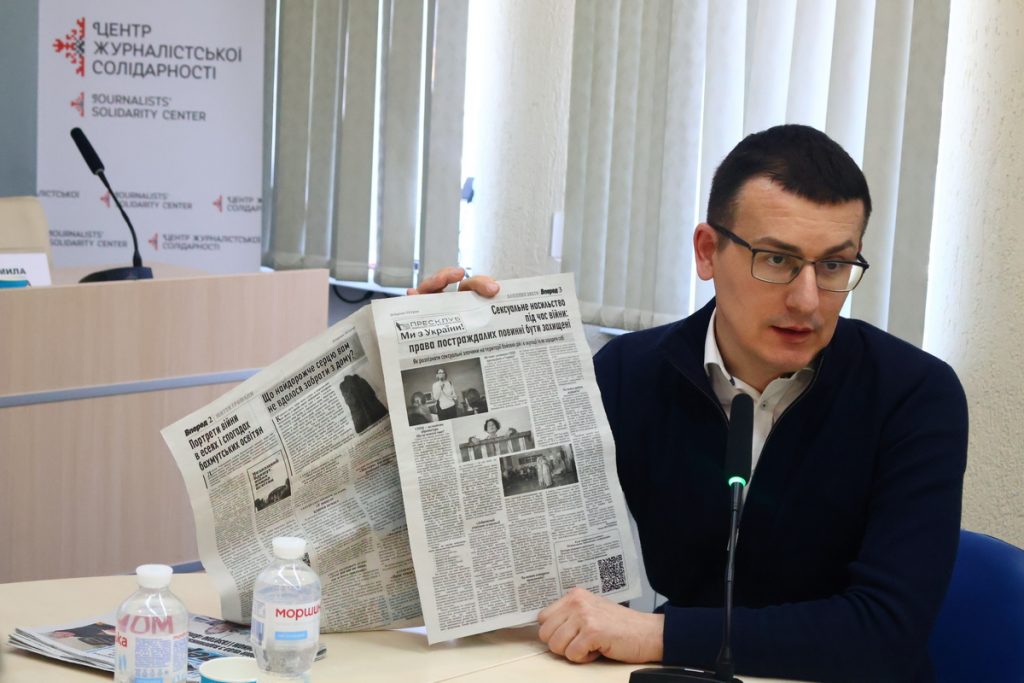
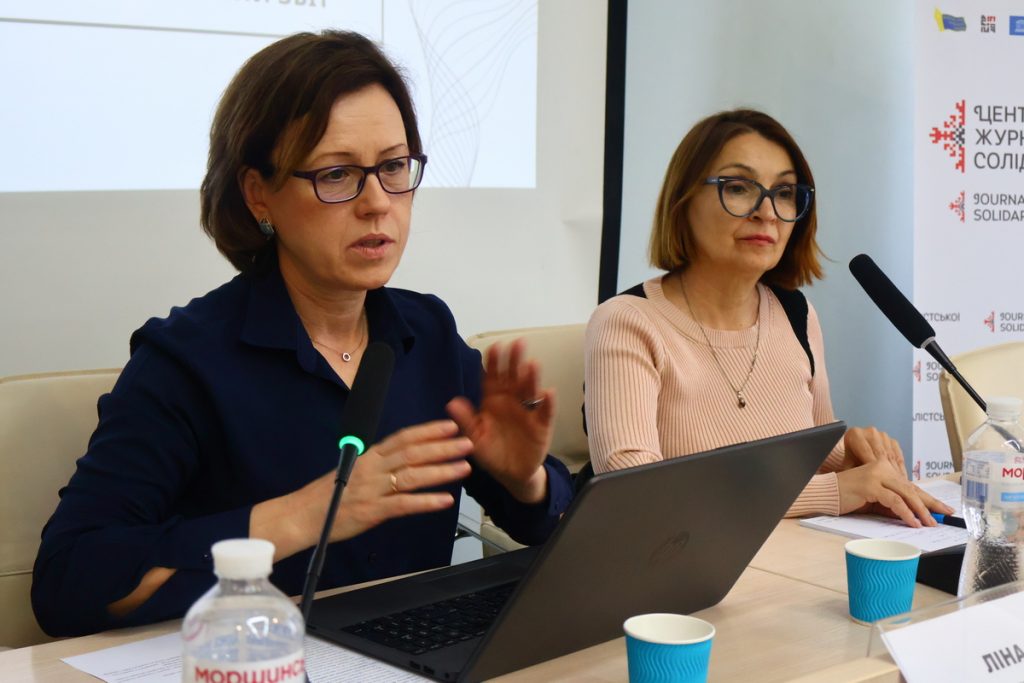
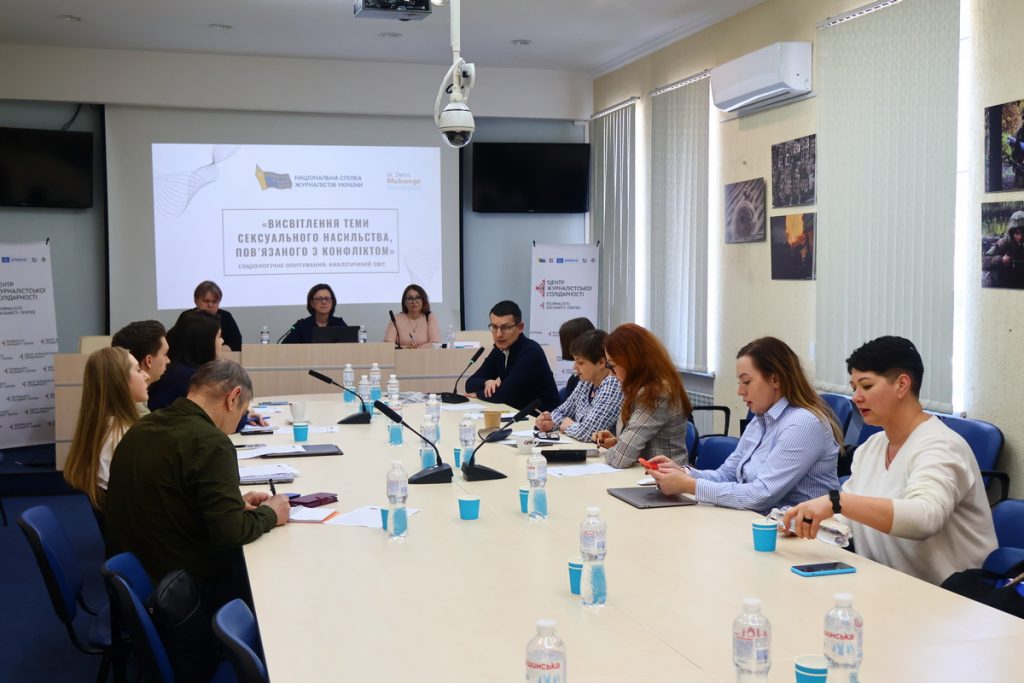
Contacts for information:
+380 (96) 905 22 76

 THE NATIONAL UNION OF
JOURNALISTS OF UKRAINE
THE NATIONAL UNION OF
JOURNALISTS OF UKRAINE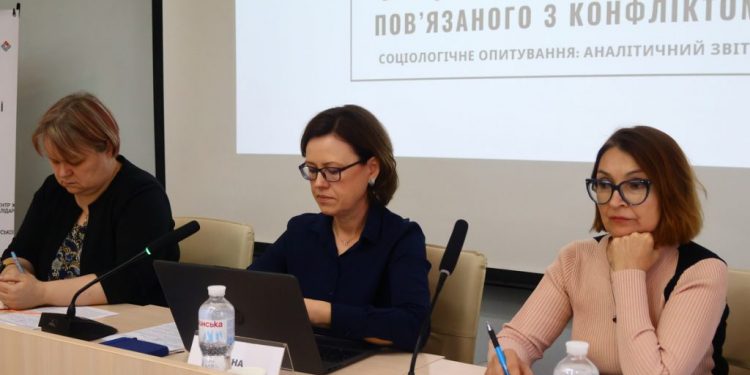

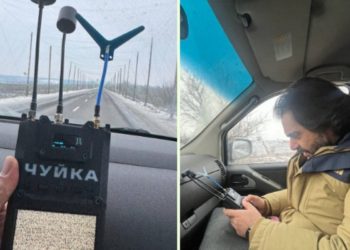
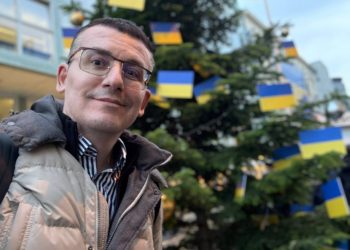













Discussion about this post